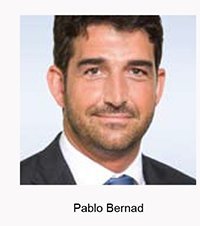Energising Africa – AVM
Energy companies have a firm focus on the rich natural resources of Angola and Mozambique. But the countries’ legal and economic systems are presenting some unique challenges for investors.
 The current appetite for oil and gas and mining projects in Africa is extraordinary, says António Vicente Marques, Founding Partner at AVM Advogados, an Angolan law firm. “Many businesses that have not dealt with places such as Angola and Mozambique now want to establish a local practice.”
The current appetite for oil and gas and mining projects in Africa is extraordinary, says António Vicente Marques, Founding Partner at AVM Advogados, an Angolan law firm. “Many businesses that have not dealt with places such as Angola and Mozambique now want to establish a local practice.”
In the case of Mozambique, liquefied natural gas (LNG) has been the priority for the Government. Leading energy companies, such as Eni and Anadarko, have been the early movers and have invested heavily in exploration and discovery of gas reserves during recent years. The anticipation, adds Claudia Santos Cruz, AVM’s Lisbon Managing Partner, is that these companies will be able to complete projects and begin exporting LNG within the next five years.
In the case of Anadarko, it is developing an $18bn LNG project that is intended to sell LNG to Asia. Eni’s multi-billion dollar project is due for a final investment decision next year. The Government has estimated that, generally, the level of LNG investment could reach up to $50bn over the next 10 years
Also, the banking industry in Africa has been improving and the expectation is that capital will be required, says Vicente Marques. “Many South African, Portuguese and British banks have ventured into Lusophone Africa and the demand for energy – especially from jurisdictions such as Japan that closed its nuclear power stations following the 2011 tsunami – means strong offtake agreements are likely.”
African countries, of course, present certain unique issues to deal with. Mozambique has seen a civil unrest over the past 18 months; while the Angolan capital Luanda has been regularly named the most expensive city in the world.
Such political and economic risks tend to be factored into most projects and Santos Cruz says that the local laws remain the biggest challenge to investment. “While the legislation has been improved – Mozambique for example has legislation in English, which is important for international contracts – reforms are on-going and that may encourage investment in the future.”
Santos Cruz points to issues regarding taxation of oil companies as well as restrictions on business operations. For instance, recent changes in both Angola and Mozambique largely require that international investors enter into contracts with local companies and almost all the proceeds from projects need to pass through the local banking system. Likewise, the Angolan government expects that 70 percent of the labour force on any projects is drawn from the local market. In Mozambique, that amount rises to 90 percent – depending upon the total staff.
Such requirements to use a certain percentage of domestic labour can be problematic, because industries like oil and gas or mining demand very highly skilled workers and there may not be enough of those in the local market, says Vicente Marques. “Foreign workers too often find that securing a work visa can be a long process.”
Furthermore, many African countries require that foreign firms enter into a joint venture with local companies for projects. The local legislation states that the local entity must hold 51 percent of the joint business, theoretically making the foreign firm a minority stakeholder, although contractual provisions usually help avoid complications.
Those companies operating in the region also have new reforms to contend with. Oil, for instance, is priced in US dollars and Angola’s rich resources have resulted in a dual-currency market, with US dollars used alongside the local kwanza. As of October 2012, all payments to local oil and gas operators in Angola must be made through a local bank account and, from July 2013, payments will need to be made in kwanzas.
“These are not the only challenges for investors,” Santos Cruz explains. “Foreign technical assistance oil and gas contracts now need to be checked by various State bodies – such as the Ministry of Economy and the Central Bank – and this can be a time-consuming process.”
Vicente Marques expects the interest in Africa to remain strong from Portuguese, Brazilian, Chinese and other international investors. And other than Angola, he predicts new activity in other former Portuguese jurisdictions, such as Macau and East Timor, as the next step in the growth of the energy markets.












